Dec. 21, 1922 ~ Nov. 21, 2009
This is the second in a series of posts about the books I have in my personal library. My collection spans across various subjects and genres, and this second installment will feature some of the titles in my military book collection. The blog is divided into different topics describing its own specific subject matter and their general influence on, and comparisons to certain aspects of my life and on my career as an artist.
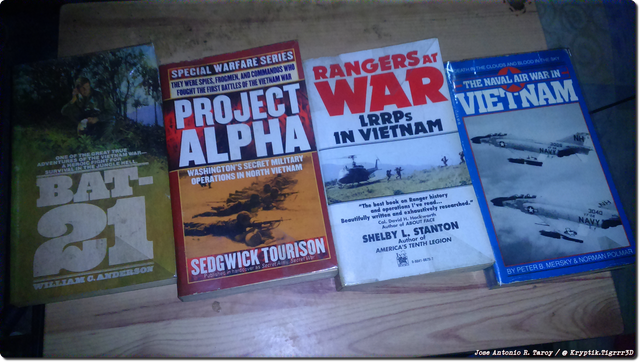
You Are What You Read...Sort of.
The world was ablaze with war at the time of my birth. Across the sea, the US-led Vietnam War was raging on in the Asian mainland. And here in our own shores our government was busy fighting a war of its own against Communists insurgents, Muslim separatists, and various lawless elements.
The war against insurgency was a part of the early years of my childhood. Images of death and destruction form a small part of my memories of those years. Our childhood is nothing to be envious about, and I cannot recall how many dead rebels and soldiers we have seen while living in Mindanao in the 1970s.
But one of the most unforgettable things I experienced during that time was seeing a firefight between Army troopers and communist rebels.
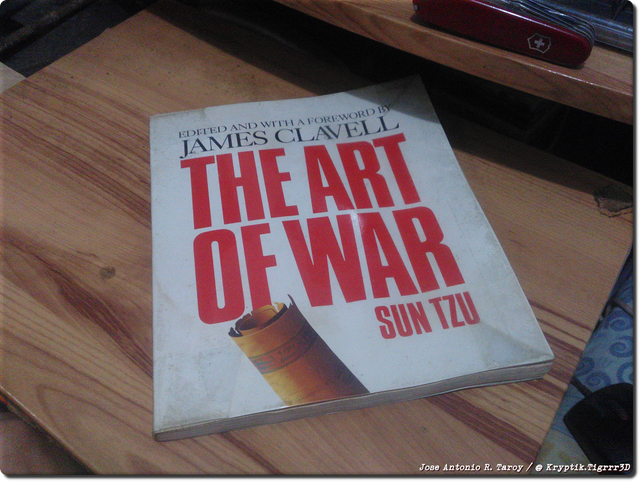
It was an event I witnessed with my mother, as she and I stood on the front porch of our house. The soldiers were on the street right outside our house, and the rebels were in the parish church on top of a hill, on the other side of the road about 50 or 60 meters away.
The soldiers were yelling at us to get indoors as far back as we could, as Mom struggled to pull a very excited 3-year-old me indoors. Just like in the movies.
Becoming a victim of collateral damage surely would have been an awful way to go, but that wasn't my first brush with death. I fell violently ill when I was just four-months old and nearly died, but it is something that is best elaborated on in a blog of its own someday.
The Beginning: Boot Camp
All who enlist in the armed services begin their careers by going through basic training, or boot camp. But for some of us who lived in military households, our lives were pretty much like boot camp from the moment we could walk.
And from the moment I could talk and understand what the grownups were saying, life became one big list of rules, and any disobedience would result in getting smacked or a nasty tongue-lashing. We all lived in fear of the old man.
Growing up in my maternal grandfather's house exposed me to a lot of things related to war. He was an Army infantryman who fought in World War II and escaped the Bataan Death March, along with his brother.
He continued his service at the end of the war as a reservist in the Army, and was even recalled to active duty during the Korean War. But, luckily for him, and especially for me, the war ended before he could even deploy. Or I probably wouldn't be alive to write this today.
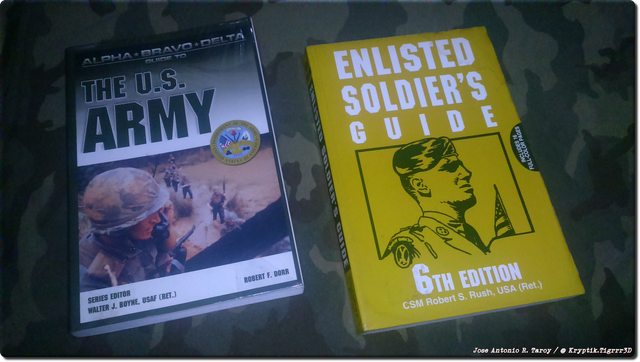
After the war Grandpa went back to school and became a mechanical engineer, and a particularly bright one at that. His penchant for precision and accuracy, expected from a military man, was something he carried over into being an engineer. He demanded and expected the same from us and for everything we said and did.
It wasn't all just discipline and rules. He also taught us many fun and useful things that we all are thankful for, to this day. He got us interested in shooting, martial arts, body-building, and overall athleticism.
Mastery of the basics, hierarchy and discipline, organization and planning, preparedness, resourcefulness, and the ability to handle all tough and nasty situations we ever find ourselves in, these are just some of the things we are grateful for.
Grandpa loved the 80s TV series The A-Team. MacGyver and The Equalizer, and inspired us to think and hack our way through problems, like the brainy protagonists of those shows.
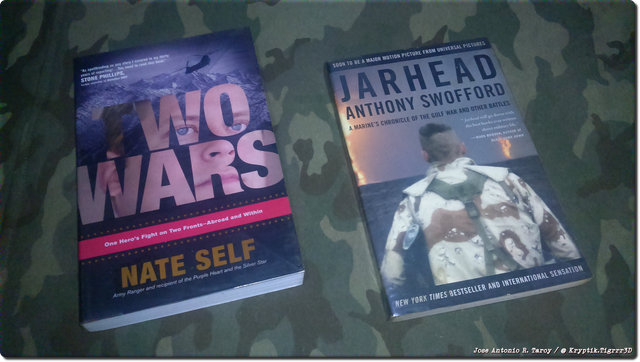
But what resonated within me the most from his teachings was about being factually accurate at all times. Bad intel can get soldiers killed, he liked to say. He told us to be mindful of the information we receive, or share with others.
To him, misinforming or miseducating someone was a mortal sin, and also receiving wrong information and believing it without verifying it first. And, if he were still alive today, don't let him catch you falling for fake news and sharing it with others on your FB newsfeed. And you're even worse if you hate being corrected.
He would deem you as an untrustworthy gullible fellow, a "bad soldier" who would only be useful as cannon fodder in the battlefield. I guess that's one of Grandpa's quirks that rubbed off on me, though I happen to be more forgiving than the old man. My FB friends know me well.
Reach for the Skies
Military aviation was another thing my late grandfather was interested a lot in prior to the war. He wanted to be a pilot so much, that when he was enlisting, he initially tried to become an air cadet and then get trained to be a fighter pilot. But, bad eyesight disqualified him from flight training, and so he ended up in the infantry.
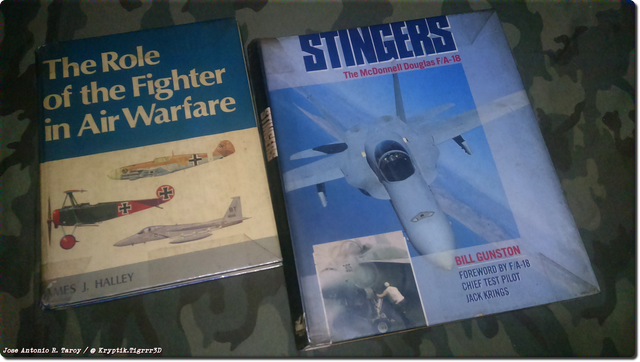
His love for airplanes and flight later rubbed off on my uncles, who then ended up influencing me too. That was what got me started on my interest in wanting to fly fighters too.
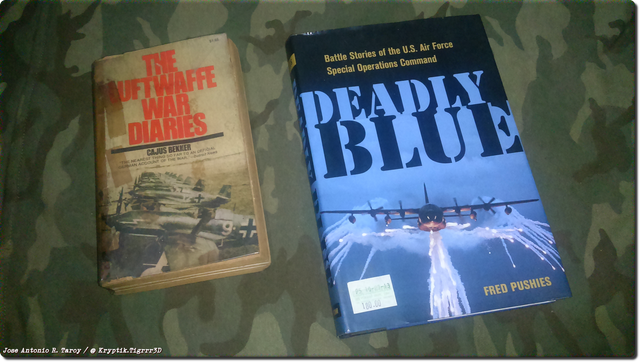
And, just like Grandpa and my uncles, my bad eyesight kept me on the ground. I coped with my frustrations at not becoming a fighter pilot by playing combat flight simulation games on my computer and building plastic scale models.
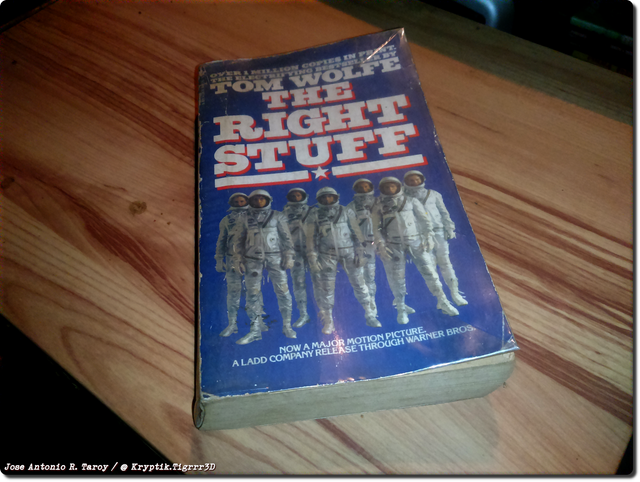
Had I been successful in getting myself strapped into the seat of a jet fighter, it surely would have made me curious to find out if I had the right stuff too, in getting into the space program as an astronaut.
Chasing the Dream - Conventional Jobs or "Special Operations"?
The old man was ecstatic when he learned that his first grandson wanted to follow in his footsteps and join the services. In fact, it seemed like he was the one more excited about it than I was.
He asked me what I wanted to do, and I told him I wanted to fly jet fighters. He nodded in agreement at my declaration, but asked me if I had a backup plan in case I don't make it into flight training. He then suggested that I should consider the Army too, and become an infantryman like he had been in his youth. Perhaps I could even try out for Army special operations and be among the soldiers he admired.
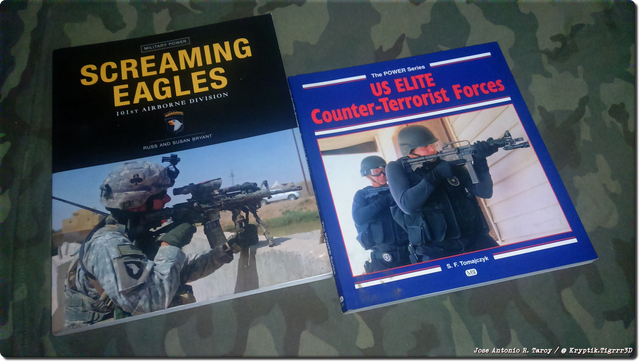
But, for some reason only known to him, he never tried to get into one. However, special operations is not for those with a rigid and conventional mindset, like Grandpa. It looks clear to me now that he wasn't cut from the same cloth as the men in such units. Their comparative mindsets were worlds apart.
Later on in my college years he told me that it didn't really matter to him whether I would get into the military or not. He just asked me to do my best in whatever career field I ended up in, and do something that would make him proud. Just like what Mom and my uncles and aunts had done in their respective careers.
I ended up not being able to enlist due to so many unfortunate events in my life. So, instead of military aviation, I entered the creative, fun, and crazy world of animation.
Animation, with its highly technical aspect, meticulous attention to detail, prestige, difficulty in getting into, makes it the creative world's equivalent to the military's special operations community. Mission accomplished, Gramps!
Direct Action!
This is the kind of mission that grandpa liked to talk about, and one that people most often think of about when somebody mentions special operations.
Typical direct actions missions are hostage rescue and capture, assassination of critical enemy personnel, or the destruction of enemy assets. They often refer to it as, shooting and looting, snatch and grab, and blowing up stuff.
And, thanks to Hollywood, which helped to glamorize this particular mission type, people think that it's all these special operators ever do.
While most units are capable of it, only a few, particularly the Rangers and the SEAL Teams, have it as their primary role. One notable example of a successful and highly-publicized DA mission is the raid to capture or kill Bin Laden, as carried out by members of SEAL Team Six.
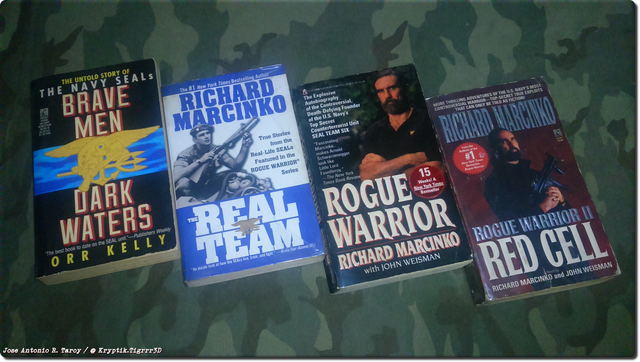
Another successful DA mission was the capture of Saddam Hussein, by the US Army's shadowy Delta Force.
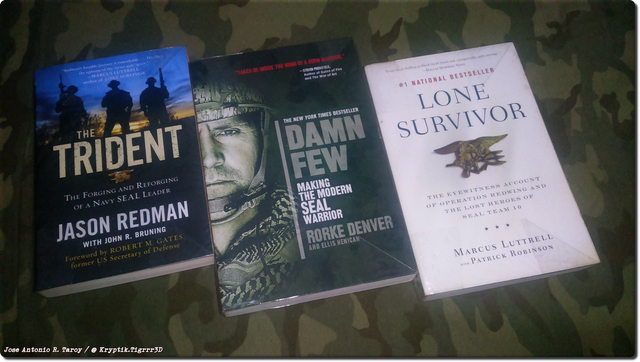
But the most prolific body stackers are the US Army's 75th Ranger Regiment. The Rangers are the unit who have racked up the highest total amount of direct action missions in Afghanistan, exceeding even the Navy SEALs and other, more elite units deployed there.
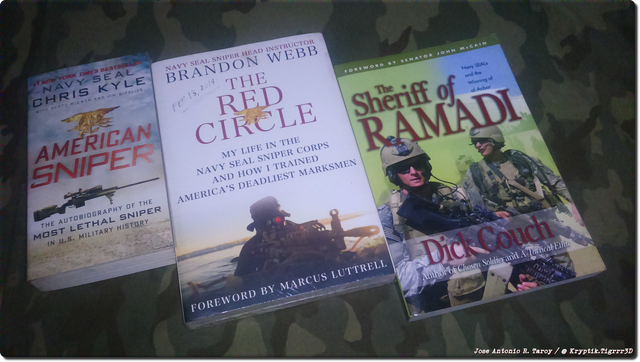
Aware of the fact that I have Army DNA in me, people often point out that I seem to have more books about the SEALs than the units of the other services. I admit I am not that big a fan of the SEALs, but this just proves the fact that there are more SEALs who have cashed in on their experiences by writing books about their time in service, than members of other units. Just go to the military section of any bookstore and you will see.
As an artist and animator, the equivalent of this would be the time I had just gotten into the animation industry. I was young, determined, well-trained, gung-ho assistant animator who was eager for action. And, for the next two years since getting in, I worked hard and slowly climbed my way up the ladder, to make my way to the next level by removing the word "assistant" from my job title and join my cousins there.
The Warrior Diplomats and Teachers
These two books are about one of my four favorite special operations units, the US Army's Special Forces, also known colloquially as the Green Berets. They are the only unit who can be correctly called Special Forces, as it happens to be their official name.
Their motto is De Oppresso Liber, which means, "to liberate the oppressed", that best describes their main mission of supporting an insurgency against an oppressive regime.
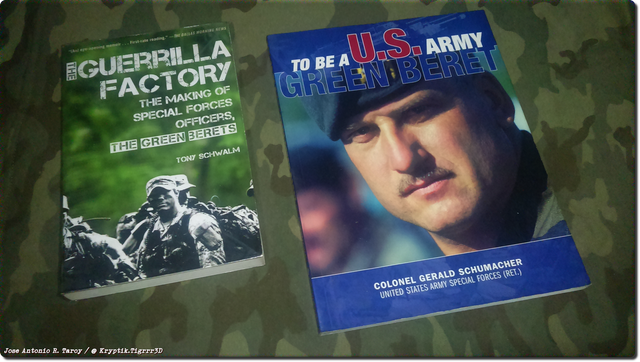
The Green Berets primary mission is waging unconventional warfare by subversion and guerilla tactics, to achieve victory indirectly through a proxy militia force which they themselves trained and stood up. They need to be smart, tough, and resourceful enough to survive and train a foreign indigenous force in austere environments, at times with limited support and communication for weeks or months with their higher headquarters.
Ok, that's enough for now about these soldiers. I will describe them in greater detail in another blog about some specific units.
An Agile, Mature, Finely-tuned, Well-oiled, Fighting Machine
And, finally we reach the realm of those who are at the very tip of the spear, the Tier One community, the elite within the elite. These guys are the ones who come to mind when one says covert ops, black ops, or elite ninja soldiers.
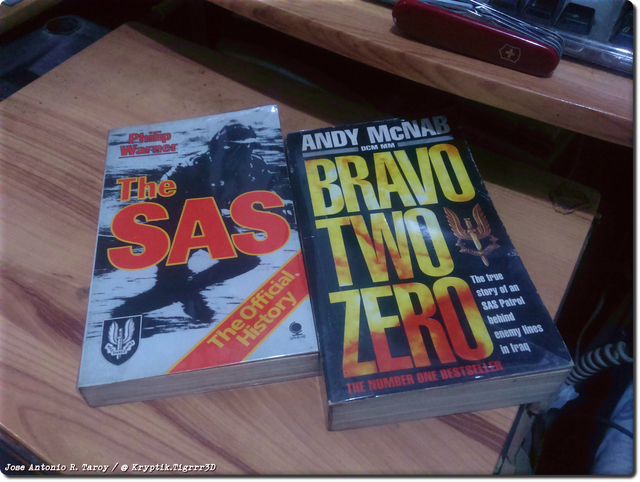
At the very top of the special ops food chain is the apex predator who started it all. These are the warriors from whom all the others were modeled. They are the British Royal Army's Special Air Service (SAS). Founded in 1941 by David Stirling, they rapidly developed the skills needed to perform the various missions they were tasked to undertake. The Royal Navy's counterpart to the them is the Special Boat Service (SBS).
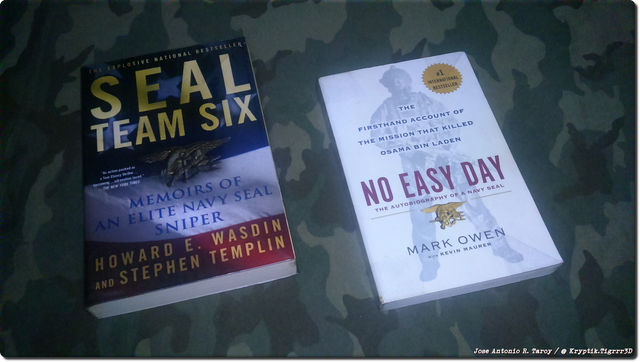
Next up are the guys who don't really need any introduction, thanks to their success in taking out the USA's most dangerous enemy at the time. However, they are usually referred to as DEVGRU, short for Naval Special Warfare Development Group, nowadays. But SEAL Team 6 is still often used. Prior to their successful mission in taking out Bin Laden in 2011, their vanilla SEAL brethren were already in the spotlight promoting themselves as America's special ops poster boys, much to the chagrin of the rest of the US special operations community, who embody "the quiet professionals" ethos once so coveted within the community.
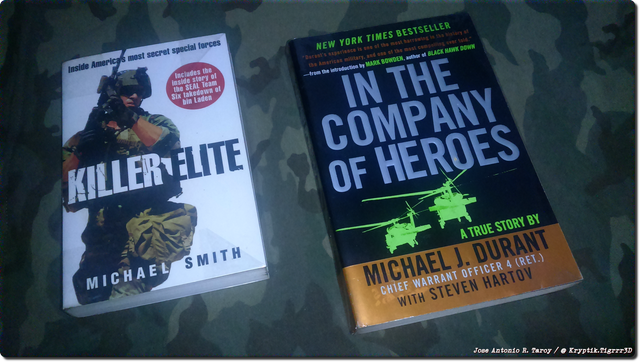
These two Army special units are in a league of their own. Intelligence Support Activity (ISA), a.k.a. The Activity, in the book on the left, and the 160th Special Operations Aviation Regiment (Airborne), or 160th SOAR, a.k.a. The Nightstalkers on the right. While ISA is highly-secretive and relatively unknown, even to most members of the military, the 160th SOAR is a well-known special helicopter unit, made famous by the movie, Black Hawk Down. They are also known for their unit motto, NSDQ, or Night Stalkers Don't Quit.
ISA is a deep reconnaissance, intelligence-gathering special mission unit (SMU), in support of Delta Force and DEVGRU. You can think of them as the US Army's mini version of the CIA.
The 160th SOAR is the premier special operations aviation unit tasked with the delivery, insertion, and extraction of special operations teams to and from their missions, as well as providing close air support to those teams.
They are currently facing a pilot shortage crisis. So, if you have a son, nephew, or cousin who wants to fly helicopters delivering ninjas to their missions, tell them to sign up for Army flight training. Who knows, maybe someday they'll end up flying as a Nightstalker.
And, finally, here is my most favorite special ops unit of all. The 1st Special Forces Operational Detachment-Delta (1st SFOD-D), commonly referred to as Delta Force, Combat Applications Group (CAG), Army Compartmented Element (ACE), Task Force Green, and its nicknames, The Unit, Deltaboys, and D-boys.
Formed in the second half of the 1970s by the late Col. Charles Beckwith, who, after returning from an exchange tour with the British SAS, saw the need for the creation of an Army unit with similar capabilities. At the time, the USA didn't have any counter-terror fighting capabilities yet, and all existing units weren't trained to handle terror threats.
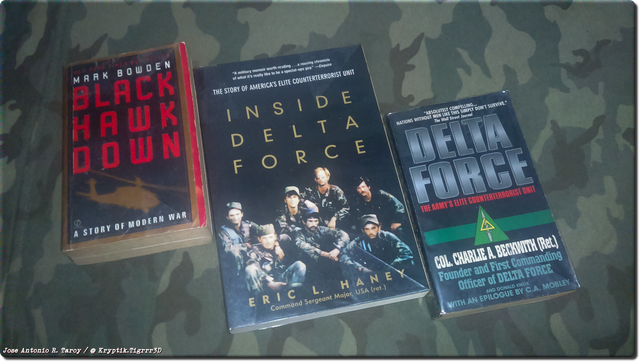
As a unit, the Army doesn't officially acknowledge Delta Force, but their existence is well known. Their elusive reputation can be credited to their secrecy, and they were an intensely secretive unit right from the start. Most of their missions are classified and will never be known to the public, save for some very high profiles ones that have made their way into headline news. One such highly-publicized mission was their most recent one - the killing of ISIS leader Abu Bakr al-Baghdadi.
There is only so much I can write about this subject, but I have to stop now before my word count goes past my self-imposed limit. I will write more about some of these units, and give them better treatment than just this mere overview of them.
As an animation artist, my profession's equivalent of this level of military expertise and prestige would be a job in the big studios abroad that create animations and other visuals for big Hollywood productions.
Since those jobs require relocation to where the studios offering them are located, it is something an aspirant would need to put a lot of consideration, planning, preparation, and money into. But with all these troubles going on around the world, and with the threat of a big war looming on the horizon, I'd rather be here with my family if it happens. I really hope it never comes to that.
People always ask me why I seem to be so fascinated with these highly-trained, elite warriors, and place them at the top of my list of role models. It's because of what they had to go through. The hardships in the training regimens they endured, deliberately designed to weed out the weak and unsuitable, are the epitome of the triumph of the human spirit over adversity.
The men who have made it have a common trait: they refused to quit. And with young males today becoming too soft, effeminate, emotionally and mentally ill-equipped to handle hardships, who easily tear up and break down in the face of overwhelming challenges, such alpha male-types need to be reintroduced to them to remind them of what it means to be a man.
So this wraps things up for now. I have other books to write about and also my first batch of Dinovember drawings to post too. Thank you for reading, and I hope you found this post entertaining, or even helpful in some way. God Bless you all, and have a nice day.
eSteem Surfer and GIMP.
This post was shared in the Curation Collective Discord community for curators, and upvoted and resteemed by the @c-squared community account after manual review.
@c-squared runs a community witness. Please consider using one of your witness votes on us here
Downvoting a post can decrease pending rewards and make it less visible. Common reasons:
Submit
José Antonio this is a great publication.
I think I've said it before: I don't like war! Now, to learn to live in peace we must read and know what happened in the war stories of all mankind. What were the causes? Who intervened? What were the compelling speeches to participate in the wars? There are so many questions to which we must find answers ... many of those answers are found in the books.
I have enjoyed this reading immensely. A big hello @kryptik.tigrrr3d
Downvoting a post can decrease pending rewards and make it less visible. Common reasons:
Submit
A big hello to you too, Marcy. I don't like war too, but with that big bad bully on the Asian mainland seemingly bent on the conquest of our nation, I must always be prepared for that eventuality. But I hope that it doesn't happen, or at least, not in my lifetime. There are a lot more that I'd still like to accomplish someday, but only as a free man, not one subservient to a foreign power.
Downvoting a post can decrease pending rewards and make it less visible. Common reasons:
Submit
Hello Hello!
When there is hate, there is war. I have always said it, to build the total peace that human beings must deserve is very difficult, these books may have a secret that cannot be deciphered.
Greetings from Venezuela
Downvoting a post can decrease pending rewards and make it less visible. Common reasons:
Submit
Hello and thank you for your comment, Saray. True, war is caused by hatred, as well as greed. I hope your country will know peace again soon, and give you a better life. 🙂 ❤️
Downvoting a post can decrease pending rewards and make it less visible. Common reasons:
Submit
is a great collection!
Downvoting a post can decrease pending rewards and make it less visible. Common reasons:
Submit
Thank you for your appreciation of my post and my collection. There are several more books of the same subject, but kept in storage. These ones in the pictures are the ones that are on my shelf.
Downvoting a post can decrease pending rewards and make it less visible. Common reasons:
Submit
ehy dear @kryptik.tigrrr3d, you wrote a great post. it is important to keep the memory of what happened and you are doing it very well with the memories of the grandfather and all your books, which are testimony of the warfare from various points of view. it is a topic that will probably never end, thanks for addressing it also on the steemit platform :-D congratulations on your work and thanks for sharing it with us !!
Downvoting a post can decrease pending rewards and make it less visible. Common reasons:
Submit
Hi kryptik.tigrrr3d,
Visit curiesteem.com or join the Curie Discord community to learn more.
Downvoting a post can decrease pending rewards and make it less visible. Common reasons:
Submit
Thank you! More posts to come this month, in spite of my busy work schedule. :)
Downvoting a post can decrease pending rewards and make it less visible. Common reasons:
Submit
Yay!
Your post has been boosted with ESTM. Keep up the good work! Install Android, iOS Mobile app or Windows, Mac, Linux Surfer app!
Learn more: https://esteem.app
Join our discord: https://discord.gg/8eHupPq
Downvoting a post can decrease pending rewards and make it less visible. Common reasons:
Submit
Hi kryptik.tigrrr3d,
Visit curiesteem.com or join the Curie Discord community to learn more.
Downvoting a post can decrease pending rewards and make it less visible. Common reasons:
Submit
Congratulations @kryptik.tigrrr3d! You have completed the following achievement on the Steem blockchain and have been rewarded with new badge(s) :
You can view your badges on your Steem Board and compare to others on the Steem Ranking
If you no longer want to receive notifications, reply to this comment with the word
STOPDownvoting a post can decrease pending rewards and make it less visible. Common reasons:
Submit